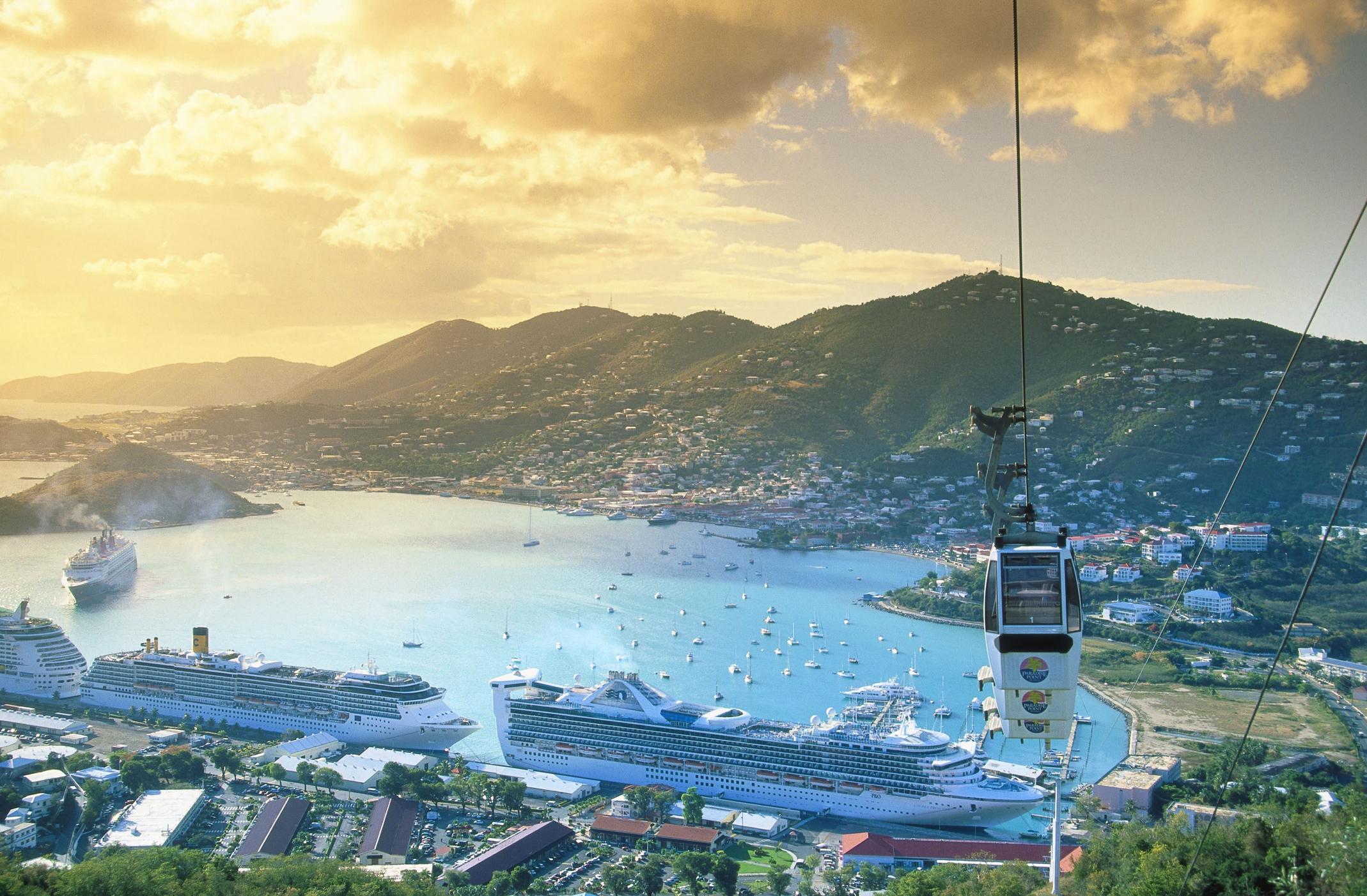
The US Virgin Islands was the fastest-growing territory for total capacity in the Americas between 2019 and 2021, growing total departure seats by +35.8%. It was also one of only three destinations in the region to grow capacity in this period, alongside Puerto Rico and St Vincent and the Grenadines. Tourism Commissioner Joseph Boschulte tells Routes how the US Virgin Islands has worked with airlines to thrive.
You have bucked the trend and grown capacity since 2019—how have you done that?
We have taken advantage of a unique situation. Much of the world was shut down and we'd never seen it before where you couldn't leave your house for three, six or eight months. But that didn't stop people from wanting to vacation in the US Virgin Islands.
We've been fortunate that the United States has been ahead of the curve in terms of its reaction to the COVID virus. Historically 90%+ of our traffic has been US travelers and they returned well before most of the rest of the world.
Plus those US travelers have the understanding that if they do test positive here, they’re under the US flag. So the level of worry or frustration about getting stuck somewhere, or having problems with travel insurance, may be less because it is a US territory. So if you come in from Texas, the CDC is the federal regulator for health in the Virgin Islands too.
We in the US Virgin Islands remain open and committed to safe travel during the pandemic and beyond. Our government has taken the path of learning to manage COVID—as opposed to running from it and closing every time we see a spike.
We stayed very committed to the information that we were receiving from health officials and the CDC to follow protocols such as masks and social distancing. We also opened a travel portal which provided information to assist with contact tracing which helped the department for health, but it also reassured travelers that everyone else on their plane or resort had been screened.
How have you communicated this to airlines and engaged their interest?
One of the things we came to a reality check with early on is that we are three little dots in the middle of the Caribbean, so we don't have the leverage of some of our Caribbean competitors. We don't have 15,000 hotel rooms.
So we took a very aggressive push strategy with them, we went to them early on to share our health protocols with them, not only from the government standpoint, but the protocols that all our businesses have, restaurants, taxis—across the board. We also included the green QR certification that lets people know before they board your asset that they've been cleared.
We shared with them our plan that allows them to not be a yo-yo of one month on, one month off. We stayed open and we've stayed consistent, and I think the airlines appreciate it.
The other part of it was the demand. We’ve been focused on marketing since 2020, specifically we changed our strategy away from cruise market into overnight marketing, and that has parlayed into these tremendous load factors that our airlines have enjoyed throughout the pandemic.
We have been a heavy cruise destination for many decades and now we're having the overnight product bloom. We’ve started to hear stories that people who have been to St. Thomas many times in the past but always during the day say they didn’t know it had a nightlife!
As the world re-opens how do you stay front-of-mind for those airlines?
We have to be very comfortable in recognizing whether or not we want to stay as a top-tier overnight destination in the Caribbean. We have made the decision to say “yes,” so that means we have to be aggressive on all fronts.
That’s consumer-facing marketing, industry strategic meetings, and the same thing on our hotel side. We actively have a presence in-market at hotel industry conferences, because for us the relationship between airlines and hotels is symbiotic. It doesn't make sense to have a ton of lift and have no rooms because the lift will leave you. It doesn't make sense to have huge inventory but no lift. They have to be able to match and I think we collectively as a destination focus on both.
And then the third piece is awareness. People need to know that you have strong infrastructure, strong safety measures in place, combined with the fact that you can get to the destination and find a safe, comfortable place to stay.
Is the short-term priority consolidating your recent success or growing further?
I think what has helped us is that since the hurricanes in 2017, we have a robust sharing economy space; businesses like Airbnb and Vrbo. What we’ve found is that category in our deck of offerings seems to grow with the business. For example, Airbnb and Vrbo business is up almost 200% in the year December/January 2021/22.
That allows us to grow in line with the airline lift. Another factor is we can also put heads on the water. Overnight, the weekly charter businesses has exploded, so people have options to stay in a traditional hotel room, to stay in a sharing economy space, and have the option to stay on the water for their trip, which allows us to stay ahead of the curve.
Barriers remain to intra-Caribbean travel—how will that affect your growth ambitions?
That’s one of the biggest challenges we have right now in the Caribbean. We try to promote to our diaspora that lives throughout the US or has moved to other Caribbean islands, but they find that the most cost-effective way to get from one island to the next, or the way that offers the most options, is to fly from your island to Miami and back. Right now, if someone has relatives in Jamaica they haven't seen in a long time, geographically it doesn't make sense that they need to fly all the way past it and then come back.
Then you start to think that somebody should be able to figure out some way to get the connections happening. What we found being a US territory is that it's difficult to get Caribbean islands, whether it's through the politics and the government, to get alignment.
We don't have as much lift as you would think between St. Thomas, St. Croix and San Juan, for example, so it is a challenge. Maybe it's set up that way because it makes money for someone.
Is this a case of working with other islands or working with the airlines?
We’ve had conversations with airlines, for example LIAT and Caribbean Airlines, and I’ve spoken to my peers in places like Jamaica. There is opportunity for cooperation where the countries themselves form coalitions with inter-country agreements that will allow for smoother travel between them; almost like a cruise ship where you can go to five different countries on the same cruise with the same itinerary and not have to show your passport or visa—we could try to replicate that.
